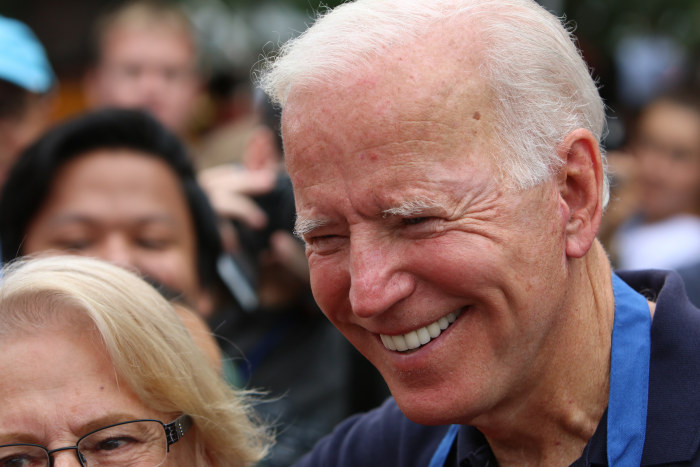Dan Guild reflects on the weekend’s two game-changing events, which have no precedent in Democratic presidential campaigns. -promoted by Laura Belin
“Events dear boy, events” – attributed to to British Prime Minister Harold McMillan, though whether he said it is disputed.
I have spent a good amount of time studying primary polling. The single most important lesson I have learned is that they are subject to sudden change. It is why I love the McMillan quote – it captures how unpredictable events can rapidly change the political calculus.
This weekend we saw two race-changing events in 24 hours: Joe Biden’s decisive win in South Carolina and the sudden departure of Pete Buttigieg, the winner of the Iowa caucuses (depending on how you measure the results). These two events in combination are impossible to model. The Iowa winner has never withdrawn this early. A front-runner has never performed so badly as Biden has before South Carolina and then recovered.
Having said that, I think history offers two parallels:
I am struck by how large the bounce was in the South. There are six southern primaries on Super Tuesday: Arkansas, Alabama, North Carolina, Tennessee, Texas, and Virginia. If 2008 is any guide, we may see enormous movement.
I am most interested in the South, because outside that region, Clinton actually lost the race for pledged delegates in 2016. If Biden is to beat Bernie Sanders this year, he will need a similar margin in southern states.
| Clinton | Sanders | |
| Southern | 700 | 332 |
| Non-Southern | 1498 | 1500 |
The problem for Biden is that after Super Tuesday, there will not be very many delegates left to award in the South:
| Total Delegates | 3991 |
| Total Southern Delegates | 1042 |
| South Carolina | 54 |
| Super-Tuesday | 518 |
| Total after Super-Tuesday | 470 |
Given the make-up of Super Tuesday, Biden should win it, and by a substantial margin. That may happen. The Texas polling is close, and the North Carolina and Virginia polling was close before South Carolina’s primary (but may not be anymore).
Importantly, Biden is now above the 15 percent threshold in recent California polling, which may limit Sanders’ margin. My own projection now has Sanders netting only 100 delegates from that state.
Only 48 hours ago, it looked like Sanders would be difficult to stop. He led in Texas and Virginia polling. There is good reason now to question that polling, but Biden still needs to significantly outperform his numbers tomorrow.
Top image: Joe Biden at the Polk County Steak Fry on September 21, 2019 in Des Moines, Iowa. Photo by Rich Koele, available through Shutterstock.



2 Comments
Context matters
In addition to the events within the individual primaries, the context out of the Democratic primaries, happening in real time, parallel with those primaries, included the following:
1) Germophobic President Donald Trump completely blotched a series of public events related to the coronavirus epidemic, including public appearances alleging that public criticisms of his handling of the matter implausibly constituted a “hoax” while reports of U.S. cases and even deaths became publicly known; and
2) The stock market–Trump’s own measure of his administration’s success for more than three years–plunged, not only in the U.S., but also worldwide.
In this larger context, a clear need for an experienced hand at the government wheel; a solid reputation for candor and authenticity as well as demonstrated instincts based on human compassion combined to give lift to the candidate, Joe Biden, who demonstrated these characteristics in abundant supplies.
In a matter of about three days, the contours of both the remaining primary contests and the general election, thereafter, were markedly altered in ways that favor Biden’s candidacy.
JamesCLarew Mon 2 Mar 4:31 PM
A note on 2008
Your analysis failed to note what might have been the most significant event between South Carolina and Super Tuesday: John Edwards dropping out of the race. He didn’t endorse till much later, but exit polls showed that more of his support went to Obama, and given that he was in the 8-10% range nationally that wound up being an important factor.
DavenportProgressive Mon 2 Mar 6:39 PM